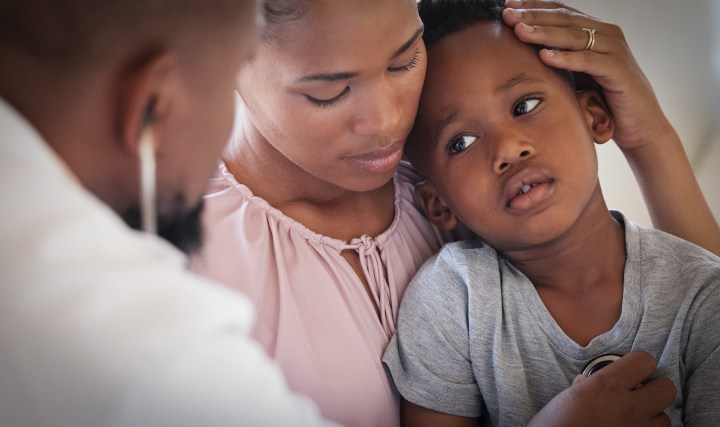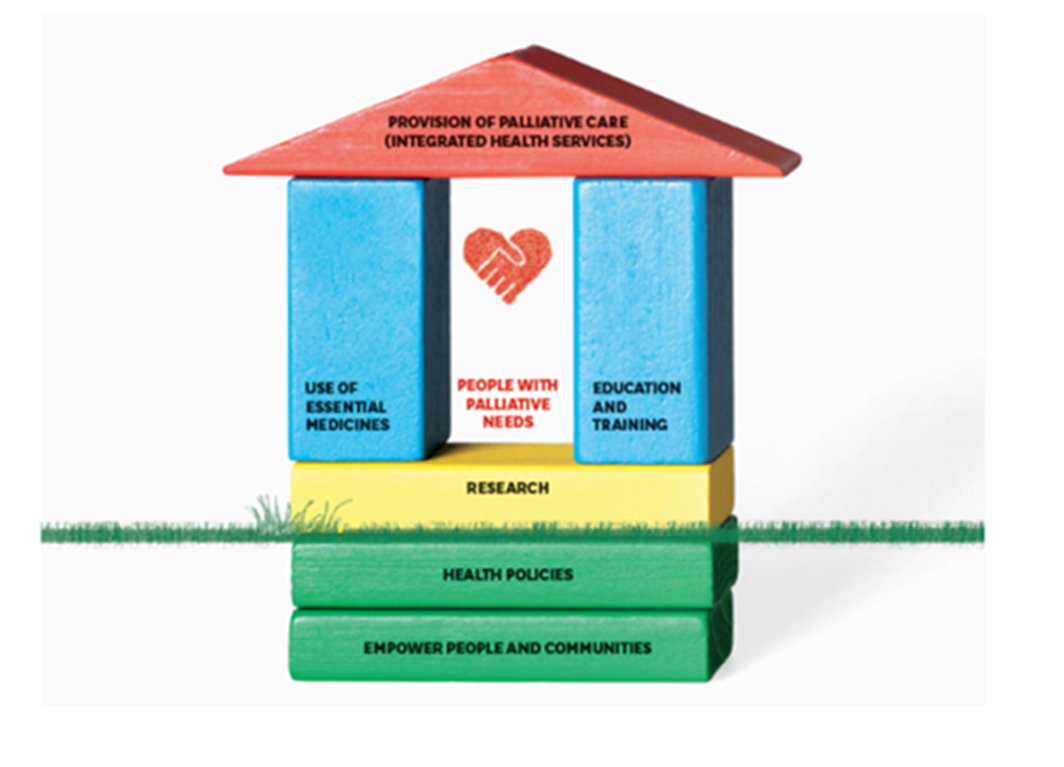PAEDIATRIC PALLIATIVE CARE
Still a way to go for sustainable paediatric palliative care models in South Africa

Children’s palliative care services in South Africa are unevenly distributed and largely NGO-funded, with only one public health post for a paediatric palliative care doctor in the entire country. Resources, research and education are key to sustainable change, say experts.
Despite the progress that has been made in national and international policies around palliative care, there remains a vast implementation gap between child and adult services – a source of frustration for health practitioners committed to paediatric palliative care.
This is according to Dr Michelle Meiring, palliative care paediatrician and chairperson of the nonprofit Palliative Care for Children South Africa (PatchSA). The organisation aims to share specialised knowledge, tools and resources to ensure the best possible care for children with life-threatening and life-limiting illnesses.
In the whole of South Africa, there is only one state-funded doctor post for the provision of children’s palliative care: a 10-hour-per-week position in KwaZulu-Natal. This is matched by one public post for a paediatric palliative care nurse at Red Cross Children’s Hospital in the Western Cape, according to Meiring.
“That’s what we have in terms of government-funded resources,” she said.
“The conclusion is that all dedicated paediatric patient care specialists in South Africa are NGO-funded, and this is not a sustainable situation.
“But I think what is very exciting is that we do have a growing number of healthcare professionals who’ve done the [University of Cape Town’s postgraduate diploma in paediatric palliative care]; who’ve done PatchSA courses; who can actually integrate palliative care into their settings.”
Read more in Daily Maverick: “More than a million children in South Africa need palliative care and are denied it” and “When worlds collide — the path to respecting and reflecting cultural diversity in palliative care”
Meiring was speaking as part of a presentation on “Sustainable models of paediatric palliative care for South Africa” at the 2023 South African Palliative Care Conference. The conference was co-hosted by three organisations – PatchSA, the Association of Palliative Care Practitioners of South Africa and the Hospice Palliative Care Association of South Africa – at the Vineyard Hotel in Cape Town between 26 and 29 April.
Need for children’s palliative care
The World Health Assembly resolution 67.19 was key in reinforcing the importance of palliative care for children, stating that the service was an “ethical responsibility of health systems”, according to Prof Julia Downing, CEO of the International Children’s Palliative Care Network (ICPCN).
“The integration of palliative care into the public healthcare system is essential if we’re going to meet the (United Nations) Sustainable Development Goals; if we’re going to meet universal health coverage. So, this isn’t an option – we have to find sustainable ways of developing paediatric palliative care across the country,” she said.

Source: WHO 2021 report, Assessing the development of palliative care worldwide: a set of actionable indicators.
There was a dearth of research when it came to the number of children in South Africa needing palliative care services, said Meiring, adding that data needed to be collected and updated more frequently.
“You can’t start managing a problem if you don’t know the scale of it,” she said.
A 2013 report by Unicef and the ICPCN on the need for palliative care for children in South Africa, Zimbabwe and Kenya found that an estimated 800,000 children in South Africa required generalised palliative care in 2012, with 300,000 of these needing specialised palliative care.
The report put the number of children reached by palliative services at 14,501 – only 1.8% of the total number needing generalised palliative care.
“If you actually analyse how they interpreted the [state of things], there were big groups of diseases that were left out of the census. So, we expect that the numbers [of children in need of palliative care] are actually even higher,” said Meiring.
Distribution of services in SA
The PatchSA website has a list of 26 children’s palliative service providers in South Africa, mostly NGOs. However, Meiring determined that about 12 of these organisations were more adult-focused, and seldom – if ever – cared for children.
“[There’s] a very unequal provincial distribution of [children’s palliative service providers]. Quite a lot of stuff is happening in Western Cape, KZN and Gauteng. But some provinces have nothing at all,” she said.
Nine of the listed service providers were in the Western Cape, while the Eastern Cape, KwaZulu-Natal and Gauteng each had four. There were none in the Northern Cape and Mpumalanga.
This uneven distribution of children’s palliative care is also reflected in the pool of graduates from the University of Cape Town’s postgraduate diploma in paediatric palliative care. Since the inception of the diploma in 2009, there have been 127 graduates, 103 of which were South African, according to Meiring.
The greatest number of graduates were from Gauteng (40), followed by the Western Cape (36) and KwaZulu-Natal (22).
“One [was] posted in the Eastern Cape. [There was] nobody in the Northern Cape, nobody in North-West, one person from Limpopo and one person from Mpumalanga. And so, you really do need to get a much better distribution of graduates,” said Meiring.
Building children’s palliative care
Those entering the paediatric palliative care space are often overwhelmed by the scale of need, according to Dr Justin Baker, director of the Division of Quality of Life and Palliative Care at the St Jude Children’s Research Hospital in the US.
He advocated for a strategic approach to services that went beyond on-demand, consult-based care, saying, “You really have to… think, which are the specific populations that I need to be thinking about, and what level of integration do I want for those populations?”
At the foundation, he continued, practitioners needed to advocate for better education, policies and resources at the institutional and national level.
Baker noted that integrating palliative care had numerous positive outcomes in paediatric oncology, including:
- Less time spent in intensive care at the end of life;
- A reduction in medical procedures for patients, without decreasing the length of life;
- Improved quality of life for patients;
- Decreased caregiver burden, anxiety and depression; and
- Improved communication among healthcare providers.
“Most people still think of palliative care – around the world – as end-of-life care,” he said.
“What we do [at St Jude] is we think about ‘how can we promote quality of life’, and that’s really when you can begin to work hand-in-hand with – in our case – oncologists who have very strong opinions about what palliative care is. And we certainly, in these definitions, have the promotion of quality of life and attending to suffering.” DM/MC




















Comments - Please login in order to comment.